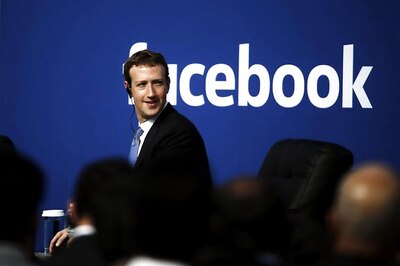
views
“The relationship between the biggest powers has never been as dysfunctional. Covid-19 is showing dramatically, either we join (together)…or we can be defeated.” These resounding words from UN Secretary General António Guterres ring true two years since the pandemic hit the world. Wave upon wave of the Covid-19 infection, with emerging mutations (the latest being Omicron) threatening the world may still not have shaken its out of its old post-colonial orders as historic divisions shine brighter on an issue of key importance – coronavirus vaccines.
Yes, vaccines are essential to defeating this pandemic, and to ensure that newer, and worse mutations of the virus do not emerge and threaten populations. Even as the plight of Delta has not yet subsided, another threat looms – that of the Omicron variant, which is being pegged as even more transmissible than the earlier mutation.
The unvaccinated help the virus to mutate as jabs target its spike protein to block it, and without them, the virus hijacks the human cell to make thousands of copies of itself. If there’s a copying mistake or error, a mutation occur, and these, accumulated over time, cause newer variants to emerge. In such a scenario, the ideal thing for the world to have done is to inoculate those more susceptible to the virus around the world first, then begin to target whole populations. However, a newer reality has emerged, where richer and more developed nations hoard the jabs, block an equitable access of pandemic-crucial information for commercial benefits, while leaving poorer nations at the brunt of ‘knee jerk reactions’ as variants from the region emerge.
What is Vaccine Nationalism and Why It Cannot Even Save Those Engaging in It
Vaccine nationalism occurs when governments enter into agreements with pharmaceutical manufacturers to supply vaccines to their own populations before they are available to other countries.
According to a report in the Harvard Political Review, the US had paid $1.2 billion to AstraZeneca by May 2020 to help speed-up their vaccine research, in exchange of 300 million doses of their vaccine. The UK made a similar deal, and similar billion-dollar agreements were done by wealthy nations like Japan, Canada. By January of this year, 96% of Pfizer/BioNTech vaccines and 100% of Moderna’s doses scheduled to be produced by the year’s end had already been purchased, the report mentions, adding that even before the pandemic reached its height, countries with 16% of the world’s population had a monopoly over half of all available vaccine doses.
According to World Bank data from August this year, four billion vaccine doses have been administered globally, with 27.6% of the world’s population having received at least one dose of a vaccine at this point. But if the information is broken down by country income groups, 1.1% Of people living in low income countries have received even one dose of a vaccine. “These figures are in terms of percentage of population, but then if you look at the breakdown when it comes to the percentage of doses to date, and this is as of July 28th, 84% of all doses that have been administered so far have all gone to people in high and upper middle-income countries. And in comparison, looking at the percentage of doses that have been administered in low-income countries, it’s a shockingly low 0.3%,” the Development Podcast by the World Bank explained.
In a recent UN convention, Namibia’s President Hage G Geingob said the state of affairs was so severe it amounted to “vaccine apartheid”, with many developing countries left out of the equation. “It is a pity that we have a situation where, in some countries, citizens are at a stage of receiving booster shots, while in other countries, many are still waiting to receive their first doses.”
However, the hoarding will still not help the developed world. Even if swathes of the developed world are inoculated in an inequitable manner, and the developing world is left behind, newer mutations will eventually make their way through the world. A live example of this is the current wave being witnessed in European countries due to the highly transmissible Delta variant. While many of these nations have covered large portions of their population, vaccine hesitancy remains – due to many social and political factors – and these infections are being described as a ‘pandemic of the unvaccinated’.
Underneath Lies Global Faultlines of an Older World Order
Even the WHO’s COVAX initiative to assist developing countries is severely underfunded and may not be able to vaccinate more than 20% of the developing world’s population unless funds are provided urgently and vaccine orders are placed, according to reports.
Unilaterism cannot work. If anything, global crises such as the pandemic, and climate change make the case for a multilateral approach. According to the UN Independent Expert on international order Livingstone Sewanyana, the world should “fully and unequivocally embrace multilateralism, international cooperation and solidarity as the sole way to defeat the pandemic.”
As the pandemic and its devastating consequences continue to wreak havoc on the world, Sewanyana emphasised the importance of embracing “renewed multilateralism.” We can respond to and recover from the pandemic by putting people and respect for human rights at the centre of the process, he said, with a more effective and inclusive approach.
“The pandemic presents an opportunity for the world to be better prepared the next time, to rebuild better and more resiliently, while achieving a democratic and equitable international order,” he said. “It must be taken decisively.”
South Africa and India also have long called for the World Trade Organization (WTO) to suspend intellectual property (IP) rights related to COVID-19 to ensure that not only the wealthiest countries will be able to access and afford the vaccines, medicines, and other new technologies needed to control the pandemic. However, pharmaceutical industry and many high-income countries are vehemently opposed to the move, which they claim will stifle innovation at a time when it is most needed. According to reports, India will lead demands at a WTO meeting next week for an intellectual property rights waiver for Covid-19 vaccines and supplies.
In a post-colonial world, political and social attitudes in the IP system should be guided by norms of equality, justice, and welfare rather than colonial superiority, experts argue. Researcher Michael Birnhack has said colonialism was often such a brute transplant where the coloniser applied its own foreign law in the domestic scene. In the context of intellectual property, he contends that “there is a need to develop an approach (alternative) that allows for the other side of the story, that of the colonised. He calls this a post-colonial approach to intellectual property, desperately needed in this new, profoundly more dangerous world.
“An alternative narrative could put third-world priorities on the global IP agenda. This can begin by re-modeling the TRIPS ecosystem’s legitimacy crisis and strengthening the functions of IP. The solution is decolonization, regional integration, and global justice,” he says.
Where India Stands
While EU countries’ vaccine nationalism reveals their double standards, India has carefully steered clear of the move. As argued in this ORF report, India’s expertise in the pharmaceutical industry has served as the foundation for her vaccine diplomacy. Vaccine supplies have now been delivered to countries in Asia, Africa, and Latin America as part of Operation Vaccine Maitri.
According to exclusive information obtained by CNN-News18 this morning, Bharat Biotech has also received the Centre’s nod to export 108 lakh doses of Covaxin commercially, in view of sufficient stock available with the states.
The vaccine will be exported to eight countries- Paraguay, Botswana, Vietnam, Myanmar, Philippines, Singapore, Cameroon and UAE; a timely move that comes amid renewed realisations of an equitable world vaccine order.
Read all the Latest India News here




















Comments
0 comment